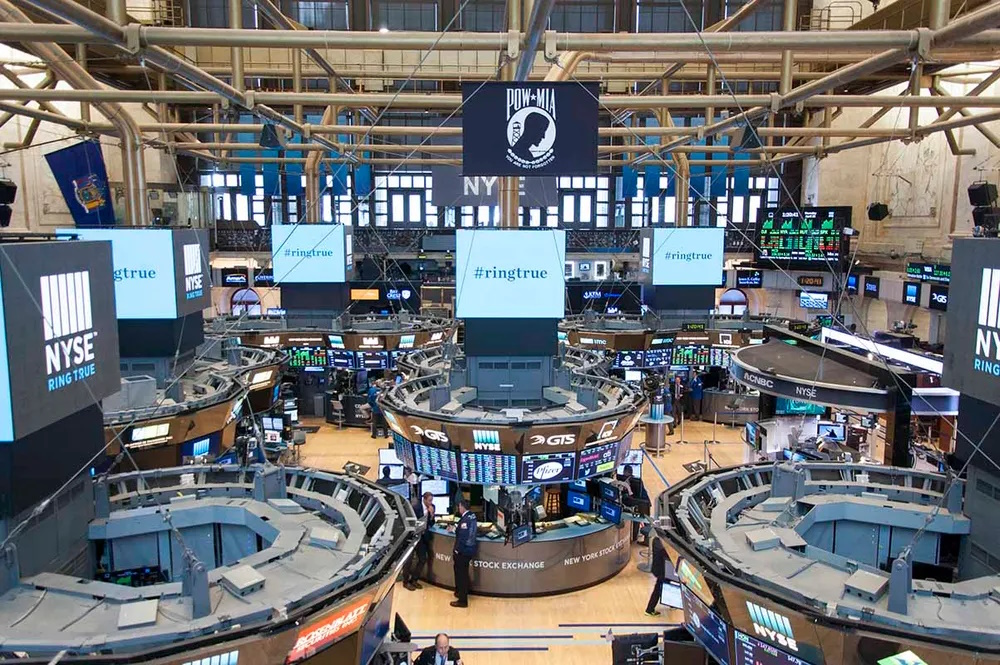
The major index futures indicate a significant increase at the open on Monday, suggesting that stocks are poised to recover after experiencing notable weakness in the previous week. The recent upward momentum observed follows the Senate’s decision to advance legislation aimed at terminating the government shutdown, which has recently set a record as the longest in U.S. history. The Senate cast a vote of 60-40 in support of a temporary funding bill, which additionally aims to reverse certain recent mass federal layoffs. A number of Democratic Senators diverged from party leadership to support the progression of the legislation, which includes a provision for a vote on the extension of enhanced Obamacare tax credits. The final approval of the bill may face delays due to the actions of a single Senator, and it remains contingent upon the endorsement of the Republican-controlled House of Representatives.
Although the markets have predominantly dismissed apprehensions regarding the shutdown in recent weeks, this news could still prompt traders to acquire stocks at relatively lower levels in light of recent valuation concerns. The conclusion of the shutdown would facilitate the reinstatement of the dissemination of crucial U.S. economic data that has been temporarily suspended. “A key impact on the markets of the impasse, beyond the hit to the wider economy, has been the lack of data as key releases on areas like the jobs market have been delayed,” stated Russ Mould. “This has generated a significant level of uncertainty, which markets notoriously dislike, and it is also obstructing the Federal Reserve’s capacity to make well-informed decisions regarding interest rates,” he added. “In this context, it is unsurprising that investors respond favorably to indications of advancement.” Following an initial extension of the pronounced pullback observed during Thursday’s session, equities demonstrated a notable recovery throughout the trading day on Friday. The major averages rebounded significantly from their session lows, with the Dow and the S&P 500 entering positive territory. The principal indices concluded the trading session with a slight divergence in performance. While the Nasdaq experienced a decline of 49.46 points, representing a 0.2 percent decrease, after a significant drop of up to 2.1 percent, the S&P 500 saw a modest increase of 8.48 points, or 0.1 percent, and the Dow recorded a rise of 74.80 points, equivalent to 0.2 percent.
For the week, the tech-heavy Nasdaq experienced a decline of 3.0 percent, while the S&P 500 fell by 1.7 percent and the Dow decreased by 1.2 percent. The recovery attempt observed in afternoon trading could indicate a sense of optimism regarding the conclusion of the extended government shutdown, spurred by an offer from prominent Senate Democrat Chuck Schumer. Schumer proposed to secure Democratic backing for a short-term funding bill aimed at reopening the government, contingent upon Republican agreement to a one-year extension of enhanced Obamacare tax credits. In early trading, stocks continued yesterday’s decline amid persistent concerns regarding valuations, as investors have recently voiced apprehensions about a potential artificial intelligence bubble. Valuation anxiety triggered a sell-off on Tuesday, with shares of Palantir Technologies plunging even though the software company reported better than expected fiscal fourth quarter results and raised its revenue guidance. David Solomon and Ted Pick have both cautioned about a substantial market correction anticipated within the next one to two years. Following a rebound on Wednesday, valuation concerns emerged once again on Thursday, even in the absence of significant catalysts. Negative sentiment emerged following a report from the University of Michigan indicating that consumer sentiment in the U.S. has declined significantly more than expected in November. The University of Michigan reported a decline in its consumer sentiment index, which decreased to 50.3 in November, following a drop to 53.6 in October.
The index was anticipated by economists to decline slightly to 53.2. The consumer sentiment index experienced a significantly larger than anticipated decline, falling to its lowest point since reaching a historic low of 50.0 in June 2022. Joanne Hsu observed that consumers are increasingly voicing concerns regarding the possible adverse economic impacts stemming from the ongoing U.S. government shutdown, which has persisted for more than a month. Computer hardware stocks exhibited a notable reversal during the trading session, with the NYSE Arca Computer Hardware Index climbing by 3.2 percent following a decline of as much as 3.0 percent. Notable resilience was also observed in gold stocks, evidenced by the 2.3 percent increase in the NYSE Arca Gold Bugs Index. The resilience in the sector was observed as the price of gold ascended beyond the $4,000 per ounce threshold. Natural gas airline and commercial real estate stocks exhibited notable upward movements during the day, whereas a discernible weakness persisted among networking and semiconductor stocks.

